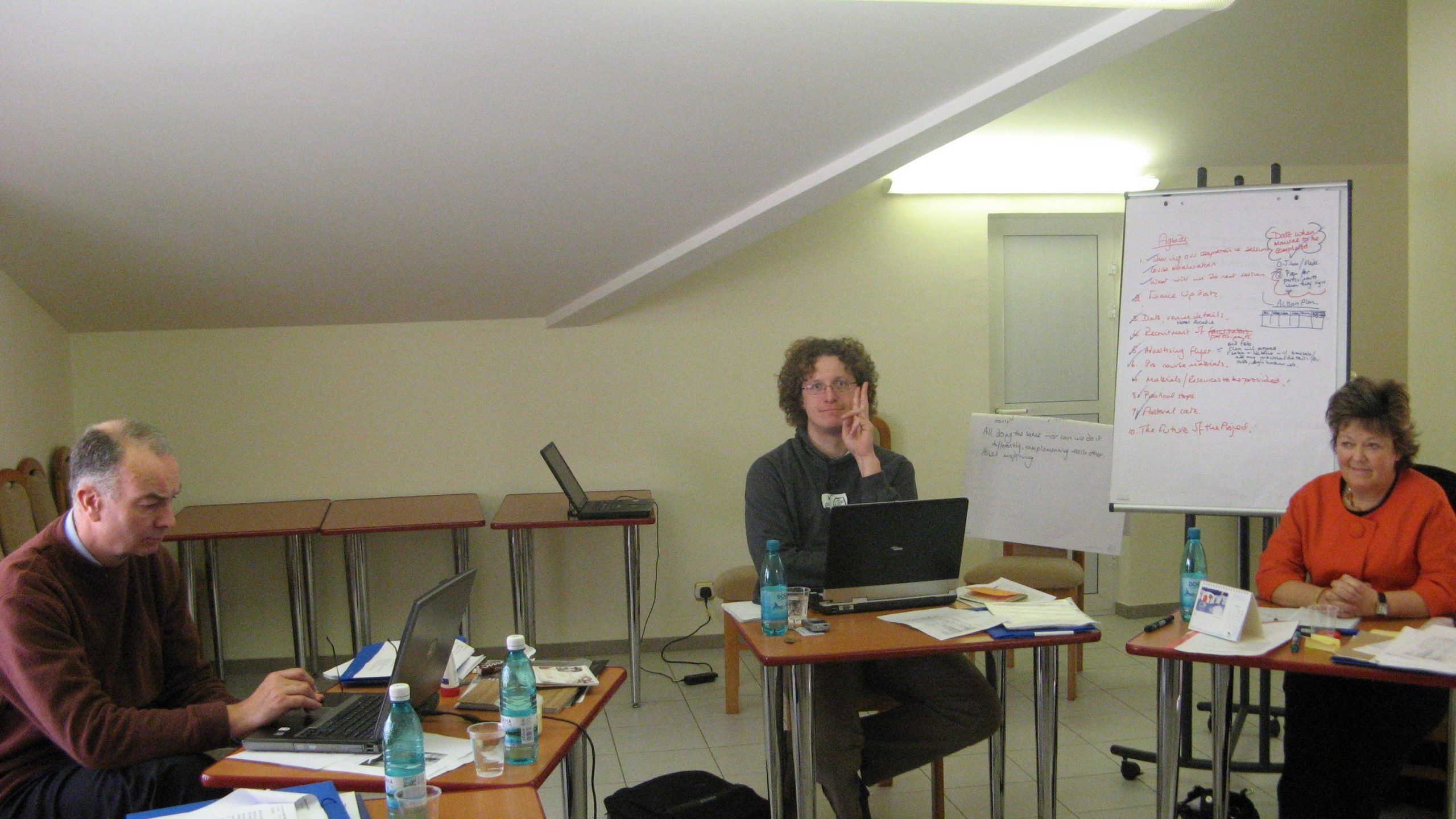Community School Development Project in Moldova (phase I)

Project duration: January, 2005 – March, 2007 (phase I)
Implementer: Programul Educațional Pas cu Pas/ Step by Step Moldova
Financial support: Charles Stewart Mott Foundation, OSI (Open Society Institute), Soros Foundation Moldova, ProDidactica Educational Center, Child Rights Information Center, the League for Preuniversity Debates
Other partners and supporters: ISSA (International Step by Step Association), Ukranian Step by Step Foundation, Local Public Administration/Mayoralty, District Department of Education, Youth and Sport
Project goal: empower schools, by developing own new democratic culture open to multiple partnerships and to meaningful learning for people in all age groups, to become catalysts of social changes in their whole community.
Through its experience since 1994 in supporting the democratic reform of the education system through implementation of a student-centered classroom model in partnership with families and communities, Step by Step Moldova (SBSM) committed itself to a complex project to help primarily rural communities to optimize their resources – which also corresponds the goal stated by the MOE for the basic strategy of Poverty Reduction and Economic Growth in Moldova – and help schools serve the needs of their communities.
Goal # 1: School inner transformation/improvement.
Goal # 2: School-community partnership building for sustainable community development.
Goal # 3: Building capacity for further replication of pilot models.
Goal # 4: Promoting the concept of community education
Goal # 5: Network development.
Project actions
- To support the process of school-community partnership building for sustainable community development in 7 pilot schools, SBSM:
- organized regular central trainings, as well as local meetings and workshops for the schools’ Advisory Boards of community members, representatives of local NGOs, including Parents and Teachers NGOs, representatives of private and state sector, other active people willing involved in local actions
- supported locally initiated programs based on each community needs, focused on cultural, social, ecologic and economic issues communities are facing
Many communities managed to get matching funding for their local initiatives from the Moldovan Social Investment Fund, World Bank Small Grants Project, Swedish International Development Agency, UNICEF, IREX Citizen Participation Program. Additionally, a new SBSM international partner – Helping Hand Moldavia from the Netherlands – provided some equipment (like furniture for children programs, hairdresser chairs, etc.) and clothes for vulnerable families to be distributed through the community school.
2. To help pilot schools build capacities for further replication of the pilot model, to contribute to network development and to promote the concept of Community School the following were undertaken, SBSM advanced the skills of its expert trainers/mentors and trained local trainers from Community Schools.
In response to a public announcement for a further extension of the nerwork, 40 village schools applied, out of which. 24 were found eligible. The National Advisory Board made the final selection of 15 communities on the basis of the applications submitted and of the site visits reports. A contract agreement was signed and approved by the school staff, Local Public Administration/Mayoralty, District Department of Education, Youth and Sport and SBSM program.
Other actions oriented towards network capacity-building:
- the following publications appeared:
- Creating Child and Family Community Centers: A Practical Guide (jointly with UNICEF)
- Ensuring Children’s Rights Through Debate (jointly with UNDP and Debate)
- Leaflet on Community Schools in Moldova
- Articles in the MSIF newsletter Rural Alternatives, in the national pedagogical press, in the electronic bulletin on the national NGO network, and in the proceedings of the Institute for Community Development national conference.
- partnerships: partner organizations – ProDidactica Educational Center, Child Rights Information Center and the League for Preuniversity Debates – helped teachers and students from community schools develop abilities of problem-solving and active citizenship on the base of relevant community issues: through an optional course on Community Development (ProDidactica), creating and empowering Children and Youth Councils (CRIC), and through helping children and youth develop skills to voice their needs.
3. In order to facilitate the process of school inner transformation and improvement in 15 replication schools, SBSMorganized 3 workshops for community representatives on the concepts of community education, community school and its role in serving community needs and 26 local trainings on Cooperative and Meaningful learning for creation of a learning communities for the whole school staff, School board, other active community stakeholders and members, young families participated in these trainings (about 430 teachers and local leaders participated)
The community representatives had to review their implementation plans and financial resources to develop local action plans.